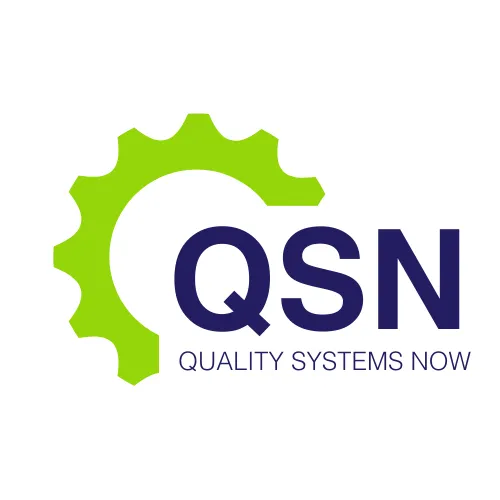LATEST NEWS

Insights from the 2024 TGA Stakeholder Survey
The 2024 Therapeutic Goods Administration (TGA) Stakeholder Survey provides valuable feedback from a range of stakeholders interacting with the TGA, Australia's regulatory body for therapeutic goods. This annual survey helps the TGA gauge its performance, identify areas of improvement, and plan for future strategic directions. The survey’s results offer insight into both the successes and the challenges faced by the TGA in regulating medical products, pharmaceutical goods, and other healthcare-related items. This paper provides a detailed review of the survey's findings, focusing on the key issues identified and their implications for the TGA's operations moving forward.
Stakeholder Engagement and Communication
Decreased Awareness of TGA Functions
One of the most notable findings in the 2024 survey is a decline in stakeholder awareness about the TGA’s roles and responsibilities. The survey revealed that stakeholders, particularly within the healthcare and medical device sectors, had lower levels of knowledge regarding the TGA’s regulatory functions compared to previous years. This presents a potential challenge for the agency, as broad awareness of regulatory processes is essential for compliance and smooth operational flow.
Efforts to address this issue are vital. For example, the TGA might need to enhance its communication strategies through more frequent updates, improved accessibility to educational materials, and outreach to key industry players. Although there is a trust in the regulatory framework itself, awareness of the processes involved needs to be addressed to ensure smoother engagement between the TGA and its stakeholders.
High Trust in Regulatory Practices
Despite the decrease in awareness, the survey results showed that stakeholders maintain a high level of trust in the TGA’s regulatory capacity. Respondents expressed confidence in the TGA’s ability to safeguard public health and ensure that therapeutic goods meet rigorous safety and efficacy standards. This trust is crucial, as it ensures that stakeholders continue to comply with the TGA’s requirements, knowing that the regulatory body’s actions are in line with global best practices.
Nevertheless, trust does not negate the need for continuous improvement. The TGA must continue to strengthen this relationship by ensuring transparency and clarity in its decision-making processes. This trust is a foundation for future collaboration between the TGA and industry stakeholders, which is essential for advancing public health goals.
Communication Gaps and Areas for Improvement
The Need for Improved Responsiveness
The survey pointed out a desire for more responsiveness and timely communication from the TGA. Stakeholders expressed frustration with delayed responses to queries and the perceived slow pace of regulatory processes. Given the rapid pace of innovation within the medical and pharmaceutical industries, this issue is of growing concern.
The TGA’s ability to respond quickly and efficiently to inquiries from manufacturers, healthcare providers, and other industry participants is essential for maintaining a robust and competitive market. Improving the responsiveness of regulatory authorities could reduce bottlenecks and ensure that innovations reach the market faster without compromising safety and efficacy.
Enhancing Transparency in Decision-Making
Another area where stakeholders felt the TGA could improve was in the transparency of its decision-making processes. While stakeholders generally respected the TGA’s authority, there were calls for clearer guidelines and more detailed justifications behind certain regulatory actions, particularly in terms of approvals, assessments, and audits.
Enhancing transparency not only improves stakeholder trust but also empowers industry players by giving them a clearer understanding of the criteria used to make regulatory decisions. This would enable manufacturers and healthcare providers to better navigate the approval processes, resulting in fewer misunderstandings and quicker approvals for medical products.
Advancements in Digital Tools and Platforms
The Role of Digital Platforms
In response to stakeholder feedback, the TGA has significantly advanced its digital platforms to improve user experience and streamline communication. The development of new portals and digital tools has allowed stakeholders to interact more efficiently with the TGA, reducing paperwork and speeding up approval processes.
However, while the digital improvements have been widely praised, stakeholders indicated that further development is required to ensure these tools are accessible, intuitive, and responsive to the diverse needs of all users, particularly small businesses that may have limited digital resources.
Streamlining Data Submission and Access
One area that could benefit from further digital improvement is the ease of data submission for regulatory purposes. The TGA’s digital infrastructure must continue to evolve to handle increasing volumes of submissions and streamline the approval process. By enabling better integration with manufacturers' systems, the TGA could reduce manual inputs and speed up the assessment and approval processes.
The Future of TGA Stakeholder Engagement
A Collaborative Approach
As the survey results suggest, a key opportunity for the TGA lies in fostering greater collaboration with its stakeholders. This can be achieved by encouraging more frequent and open dialogue between the agency and industry leaders, healthcare professionals, and the general public. Collaborative engagement would ensure that the regulatory framework evolves alongside the rapidly changing landscape of medical and pharmaceutical innovation.
The TGA could also explore new initiatives to educate and inform stakeholders, building on its existing outreach efforts. For example, organizing workshops, webinars, and industry forums could bridge the knowledge gap and enhance stakeholder awareness of the TGA’s operations.
Maintaining Trust While Improving Services
Ultimately, the 2024 TGA Stakeholder Survey reveals that while trust in the TGA remains high, areas such as communication, transparency, and digital engagement need further refinement. As Australia continues to adapt to the complexities of modern healthcare and global regulatory challenges, the TGA must prioritize stakeholder engagement and responsiveness. By addressing these gaps, the TGA can maintain its role as a leading regulatory authority while supporting the growth and safety of Australia’s therapeutic goods sector.
Conclusion
The findings from the 2024 TGA Stakeholder Survey underscore the importance of continuous improvement in stakeholder relations and regulatory transparency. Although stakeholders remain confident in the TGA’s regulatory capabilities, there is room for improvement in communication, responsiveness, and digital engagement. By taking proactive steps to address these concerns, the TGA will not only strengthen its relationships with stakeholders but also ensure that Australia’s regulatory framework remains robust, agile, and aligned with international best practices.
For a more detailed overview of the survey results, visit the full report here.
